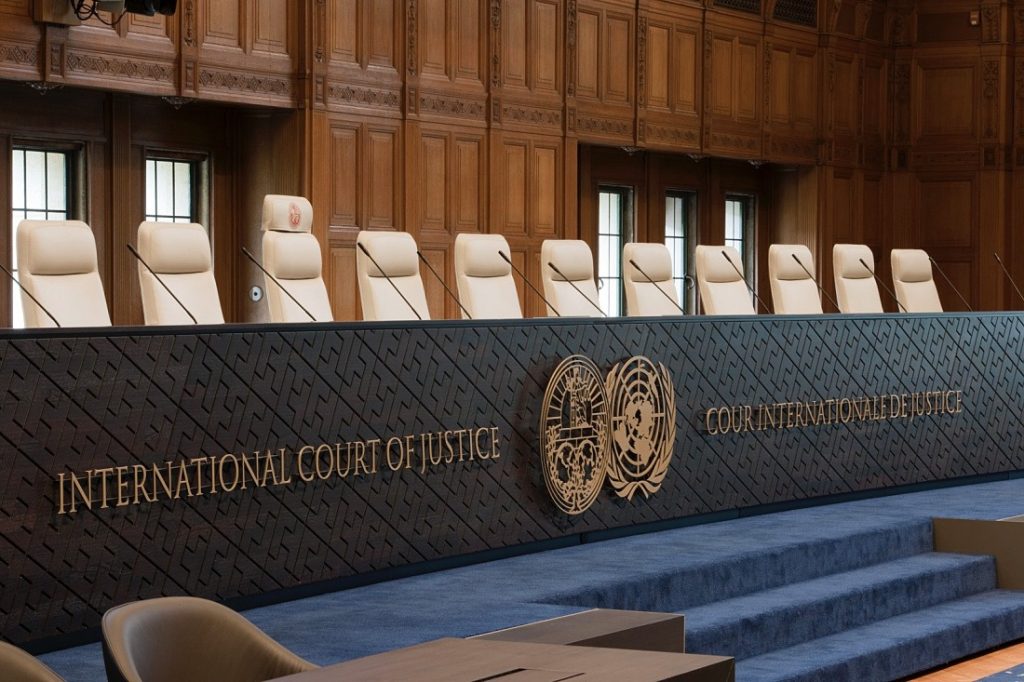The (In)effectiveness of the International Courts

INTRODUCTION
International relations are often characterized by competing interests and conflicting values, which can lead to tensions and crises. However, while there are certainly ongoing conflicts and challenges in the international system, there are also many examples of cooperation and progress. Therefore, is important to recognize that international relations are complex and dynamic, and that there will always be a mix of cooperation and conflict.
To this conflict’s resolution, International Courts (ICs) play an important role in the international legal system by providing a forum for disputes between States, individuals, and other entities. The core task of these ICs is to adjudicate disputes through interpretation and application of international law. They also contribute to the development and promotion of international law and help to hold individuals accountable for crimes such as genocide, war crimes, and crimes against humanity. It is a fact that these courts have the means to resolve disputes peacefully, rather than relying on military force or other means of coercion, which helps to maintain international stability and security, and promotes respect for the rule of law. Overall, International Courts have an important role in promoting justice at the international level and contribute to the maintenance of international peace and security.
Sadly, whether the ICs have legitimate authority over States is a central debate in the international community since international law is largely based on State consent, which means the legitimacy of the International Courts can be a complex and controversial issue. Some argue that International Courts have a strong legitimacy, as they are established by treaty or other international agreements and operate according to internationally accepted rules and principles. Others argue that International Courts lack enforcement powers, and therefore may not be able to effectively hold individuals accountable for their actions and that may be subject to political pressure or interference, which can affect their independence and impartiality.
THE (IN)EFFECTIVENESS AND LEGITIMACY OF THE ‘WORLD COURT’
The International Court of Justice (ICJ), the ‘World Court’, is the longest-lived international court in existence, being ‘the principal judicial organ’ of the United Nations (UN) and enjoying a special position among other ICs and tribunals, aiming at the maintenance of international peace and security.
First of all, it is important to keep in mind that since legitimacy is one of the strategic resources that courts can use to boost their effectiveness, and effectiveness can be a factor that enhances legitimacy, a court cannot be neither one nor the other without defining its clear aims and objectives. Additionally, judicial independence and impartiality also play an important role in the confidence over the settlement process and in sustaining the court’s legitimacy (Giladi & Shany, 2020).
However, the ICJ has faced a number of challenges to its effectiveness and legitimacy, including: (1) the fact that ICJ’s jurisdiction is limited to cases brought before it by States or other entities that have accepted its jurisdiction, meaning that it may not be able to address all disputes or legal issues that arise; (2) it relies on funding from Member States and other sources to operate, which can affect its ability to carry out its work; (3) does not have enforcement powers, and relies on the cooperation of States to implement its decisions; (4) has limited capacity, and may not be able to take on all cases that are brought before it, leading to delays and backlogs in the justice system; and (5) may face political pressure from States or other actors, which can affect its independence and impartiality.
Its jurisdictional limits, resource constraints, and enforcement (in)capacities, suggest that the potential impact of the Court is likely to remain modest and its limited effectiveness as a dispute settlement forum appears to be restricted to the promotion of international law norms.
CAN WE RELY ON THE INTERNATIONAL COURTS?
The system of international law has evolved in conjunction with the modern international relations States system. The ideology of international law does not deny that international relations may influence the international legal system. The notion that there is indeed an autonomous set of rules about the conduct of international relations which international actors must obey underpins all legal discourse. It is assumed that, even if the law is not yet ‘hard and fast’, legal debate will produce such outcome and that, even if the system is not totally objective, in comparison with international politics, international law is less dependent on subjective beliefs.
International Courts stand as proof to one of the most puzzling forms of cooperation in the international States’ community. The core task of these ICs is to adjudicate disputes through interpretation and application of international law. In using ICs’, governments renounce the autonomy and authority that they normally protect and empower third parties to be the final arbiters of issues that embrace international political debate. This makes the ICs’ legitimate authority over States a central debate in the international community since international law is largely based on State consent.
Furthermore, ICs lack independent enforcement powers and, for such reason, must rely on States’ compliance which also contributes to the main issue of the question. Therefore, how States regard ICs’ authority is crucial to keep them relevant but reinforces the potential crisis of the international justice system.

A PRATICAL VIEW
The core question about the effectiveness and legitimacy of the ICs can be shown through different cases.
For instance, it is possible to address this challenge in the Israeli–Palestinian conflict by understanding the reasons why advisory opinions relating to the Wall in the Palestinian Territories have not been implemented to date. While the non-formally binding nature of these may explain their non-implementation, their political ramifications appear to have been at the root of non-compliance. This potentially strengthens the argument that State interests and the existence of genuine consent to jurisdiction are likely to influence the motivation to comply with ICJ effectiveness (Giladi & Shany, 2020).
Another example is Russia’s invasion of Ukraine. Besides the fact that war crimes committed by Russia are being investigated in several ICs, the problem to the main question concerns the fact that the International Criminal Court (ICC) has jurisdiction to investigate war crimes and crimes against humanity, but Russia does not accept its jurisdiction. This means that the crime of aggression cannot be prosecuted by the ICC, which leads to the question, again, about the effectiveness of the ICs. Facing this, the European Commission proposed the creation of a special independent tribunal, or a specialized court integrated in a national justice system with international judges.
However, the fact is that Karim A.A. Khan KC, Prosecutor of the ICC, didn’t find the Commission approach effective and, instead, promoted the reinforcement and consolidation of the existent institution reflecting the central question of this article.
However, a relevant case which makes us rethink the relevant role of the ICs is the Rohingya Case, which shows the potential impact of the ICJ and the ICC on the crime of genocide. As the Myanmar armed forces continue to carry out atrocities against civilians and ethnic minorities, the ICJ remains an available path for holding the military accountable. In fact, what is interesting in this case regarding the effectiveness of ICs is that Gambia, a third party, was able to bring the case before the ICJ which illustrates the importance of ICs in addressing serious crimes, holding States accountable, and supporting multilateralism, which emphasizes the importance of cooperation and collective action. Allowing third parties, with legal interest, to participate in cases before the Court can help to ensure the perspectives and concerns of a wider range of States, contributing to the Court’s legitimacy and effectiveness in resolving disputes, promoting the rule of law and a more inclusive and cooperative approach to disputes.
These three chosen examples explored above provide us with a small but broad framework of the International Justice and make us question the concrete effectiveness of the International Courts.
Can we really rely on ICs to establish justice in the international sphere? Are they really a peaceful forum of conflict if States refuse to acknowledge their authority?
CONCLUSIONS
As crises unsettle the international legal order and States seek to restore it, there is more willingness to cooperate with each other, overcoming the reluctance to surrender sovereignty to a third party.
When born of legal crises, ICs are bridges that link fragile legal rules and norms of the past to their institutionalization and enforcement in the future. However, the lack of compulsory jurisdiction stands, specifically in the ICJ, as an obstacle against its exercise and rule-making power.
The point is whether, in the internal procedure of the Court, changes should be made by a revision of its rules. Among the possibilities, greater transparency, particularly through the publication of the records of the preparatory works, would help States to have a better understanding of the reasons and implications of the decisions, as well as of its conformity with the statute. Also, other steps that could be taken to manage this ongoing crisis include rethinking the UN Security Council, reevaluating the efficacy of compulsory jurisdiction, opening the door to other categories of international actors such as NGOs, and changing the sanctioning mechanism to a general prevention model.
The fact is, in an environment where the litigating parties are States and there is no effective mechanism for enforcement, creating a climate conducive to a smooth and mutually acceptable settlement of the dispute is an important priority.
I’ve been surfing online more than three hours today, yet
I never found any interesting article like yours. It is pretty worth enough for me.
In my view, if all webmasters and bloggers made good
content as you did, the net will be much more useful than ever
before.
Hello, I enjoy reading all of your post. I like to write
a little comment to support you.
Hi there, yes this article is genuinely good and I have learned
lot of things from it concerning blogging. thanks.
I wanted to thank you for this fantastic read!! I definitely enjoyed every little bit of it. Ive got you bookmarked to look at new things you postÖ
דירות דיסקרטיות בבאר שבע Son Bevans
I always spent my half an hour to read this web site’s articles every day along with a cup of
coffee.
I take pleasure in, cause I found exactly what
I was looking for. You’ve ended my 4 day lengthy hunt! God Bless you man. Have a
nice day. Bye
Terrific pоst but I was wondering if you could write a litte more on this
topic? I’d be very grateful if you could elaborаte a little bit morе.
Appreciate it!